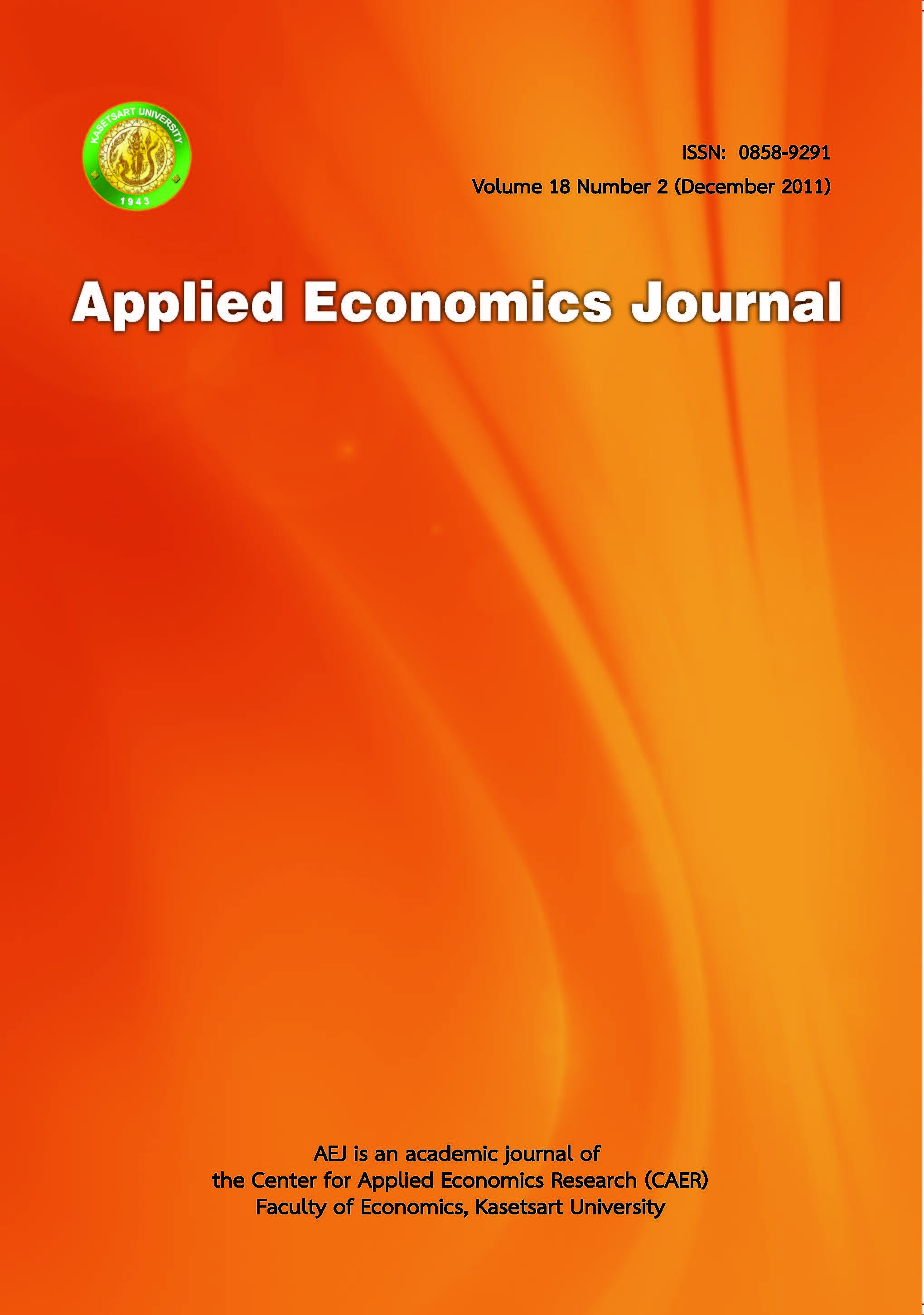School-based Management Framework and Education Efficiency
Main Article Content
Abstract
This paper applies an aspect of school-based management, which describes the actors that shape and promote school management, their interests, and the network that links them. Four categories of actors are identified: policymakers, school committee, providers, and clients. The public expenditure tracking survey and the quantitative service delivery survey were the instruments used to collect the data. The stochastic frontier analysis was employed for estimating education efficiency. The variables, which determine education efficiency, are specified according to the school-based management framework. The results show that, on average, the school-based management was suitable for explaining student achievement in the sample schools. It suggests that both socio-economic and institutional factors drawn from the school-based management framework, in addition to higher budget allocation, are required to improve efficiency in providing education.
Keywords : school-based management, public expenditure, efficiency
JEL Classification : H52, I21, I28
Article Details
The paper is published under CC BY-NC-ND, in which the article is freely downloaded and shared in its original form non-commercially and its citation details are identified.


